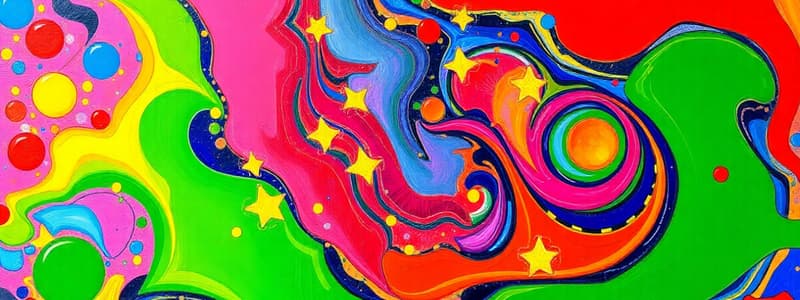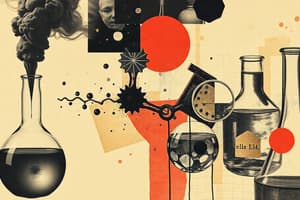Podcast
Questions and Answers
Based on the reactivity series, which metal would you expect to react most vigorously with dilute hydrochloric acid?
Based on the reactivity series, which metal would you expect to react most vigorously with dilute hydrochloric acid?
- Magnesium (correct)
- Zinc
- Copper
- Iron
In the reactivity series, lead is more reactive than iron.
In the reactivity series, lead is more reactive than iron.
False (B)
Name the metal that is less reactive than hydrogen from the series.
Name the metal that is less reactive than hydrogen from the series.
Copper or Silver
In the reactivity series, __________ is more reactive than zinc but less reactive than calcium.
In the reactivity series, __________ is more reactive than zinc but less reactive than calcium.
Match the metal with its relative position in the reactivity series:
Match the metal with its relative position in the reactivity series:
Flashcards
Reactivity Series
Reactivity Series
A list of metals ranked from most to least reactive.
Potassium (K)
Potassium (K)
The most reactive metal in the series provided.
Iron (Fe)
Iron (Fe)
A moderately reactive metal that corrodes easily.
Silver (Ag)
Silver (Ag)
Signup and view all the flashcards
Reactivity
Reactivity
Signup and view all the flashcards
Study Notes
- The list shows the order of reactivity of a series of elements
- The series goes from most reactive to least reactive
- The order is: Potassium, Sodium, Calcium, Magnesium, Aluminium, Carbon, Zinc, Iron, Lead, Hydrogen, Copper, Silver
- A mnemonic to remember the reactivity series is: PLEASE STOP CALLING ME A CRAZY ZEBRA IN LARGE HOT CAGE SSS
Studying That Suits You
Use AI to generate personalized quizzes and flashcards to suit your learning preferences.




